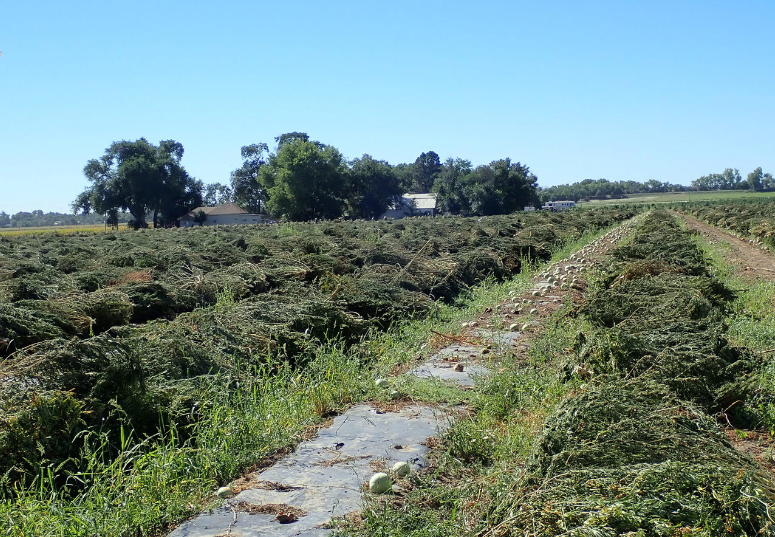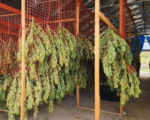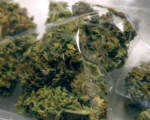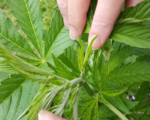Minnesota Attorney General Keith Ellison just sparked a national debate by rallying 39 attorneys general to demand Congress shut down synthetic hemp-derived THC products. This bold move aims to protect local hemp industries while tackling unregulated highs flooding the market. But will it crush small businesses or save public health? Dive in to see the full picture.
Keith Ellison, Minnesota’s top legal officer, took the lead on October 24 by sending a letter to Congress. He and 38 other attorneys general from both parties urged lawmakers to fix a gap in the 2018 Farm Bill. That law legalized hemp, but it opened the door for intoxicating products like Delta-8 and Delta-9 THC made from hemp.
The letter calls for a clear ban on any THC products with intoxicating levels, no matter how they’re made. Signers want this change through budget bills or the next farm bill update. They argue these items dodge rules and pose risks, especially to kids.
Ellison says his goal is to shield Minnesota’s growing hemp THC market. He points out that the state has rules for safe, low-dose edibles. But synthetic versions sold online or in gas stations lack oversight.
This push comes amid rising worries. A 2023 study by the U.S. Hemp Roundtable found over 70% of these products have inaccurate labels. Researchers tested samples nationwide and warned about health dangers from untested chemicals.
Industry Fights Back Hard
Hemp business owners in Minnesota feel betrayed. They say Ellison’s letter could wipe out jobs and innovation. One local producer told reporters the ban might kill the $2 billion hemp edibles market in the state alone.
Critics claim the letter mixes up safe, natural hemp THC with risky synthetics. A coalition of hemp groups fired back, saying a broad ban ignores states like Minnesota that already regulate these items well. They fear it hands control to big cannabis firms.
Take the numbers: The hemp industry added 15,000 jobs in Minnesota since 2022, per state economic data. Owners worry a federal crackdown could reverse that growth.
Yet supporters highlight dangers. Emergency room visits tied to synthetic THC rose 25% last year, according to CDC reports from 2023. Ellison defends his stance, noting the letter targets only unregulated sales crossing state lines.

Roots in the 2018 Farm Bill
The trouble started with the 2018 Farm Bill. It defined hemp as cannabis with under 0.3% THC, making it legal for farming and products. But clever makers found ways to turn low-THC hemp into strong intoxicants through chemical tweaks.
This loophole let products flood stores nationwide. States like Minnesota stepped in with their own laws in 2022, allowing edibles up to 5mg THC per serving. Still, federal gaps mean online sellers ship anywhere.
Experts trace the issue to vague wording. A 2024 report from the National Conference of State Legislatures showed 20 states now ban or restrict these derivatives. The attorneys general want Congress to step up and set one clear rule.
Here’s how the Farm Bill changed things:
- Legalized hemp farming for fiber and CBD.
- Sparked a boom in THC edibles and vapes.
- Left intoxicating versions in a gray area.
That gray area now fuels a $28 billion national market, per Brightfield Group data from early 2024. But without federal fixes, chaos reigns.
One key fact stands out. Natural hemp THC differs from synthetics, which use lab processes to boost potency. Ellison’s letter pushes to outlaw the lab-made ones to keep things safe.
Wider Effects on Health and Economy
This debate hits home for everyday folks. Parents worry about kids grabbing potent gummies that look like candy. Health pros link synthetic THC to issues like anxiety and vomiting.
On the flip side, users praise hemp THC for pain relief without full marijuana highs. A 2024 survey by the American Journal of Public Health found 40% of adults in non-legal weed states rely on these for medical needs.
Economically, a ban could shift billions to regulated cannabis markets. States with legal weed, like California, see this as a win against competition. But in places like Minnesota, where adult-use cannabis just launched in 2023, it might boost local sales.
| Impact Area | Potential Change | Estimated Scale |
|---|---|---|
| Jobs | Loss in unregulated hemp sector | Up to 50,000 nationwide (Hemp Industries Association, 2024) |
| Health | Fewer ER visits from synthetics | 20-30% drop projected (CDC models) |
| Market | Shift to regulated products | $10B revenue redirect (Industry analysts) |
Ellison stresses protection over punishment. He wants a thriving hemp scene without the wild west of synthetics.
The push also shines a light on bigger drug policy fights. With cannabis reform stalled in Congress, this letter might force action. Observers say it could pave the way for broader changes in how America handles THC.
This story boils down to balance. Ellison and his allies fight for safety in a booming industry that’s outpaced the law. They spotlight how a simple farm bill tweak exploded into a public health puzzle. As Congress weighs in, the hemp world’s future hangs in the balance, promising either stricter rules or continued confusion.
Maria Garcia is an award-winning author who excels in creating engaging cannabis-centric articles that captivate audiences. Her versatile writing style allows her to cover a wide range of topics within the cannabis space, from advocacy and social justice to product reviews and lifestyle features. Maria’s dedication to promoting education and awareness about cannabis shines through in her thoughtfully curated content that resonates with both seasoned enthusiasts and newcomers alike.








